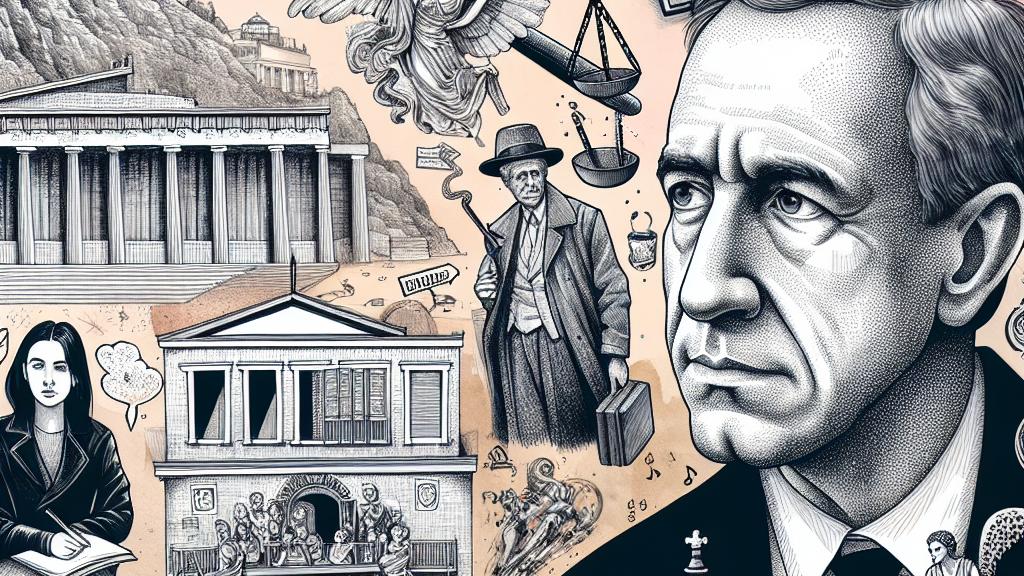The Lignadis Saga: A Trial Delayed in the Spotlight!
Overview
- Dimitris Lignadis' trial postponed to March 2025, igniting public scrutiny.
- The former artistic director is entangled in serious charges that challenge societal norms.
- Exploring the repercussions of trial delays on victims and justice.

Trial Postponement
In the culturally rich atmosphere of Athens, Greece, the much-anticipated trial of Dimitris Lignadis, once celebrated as the artistic luminary of the National Theatre, has now been postponed to March 21, 2025. This surprising delay arises from a logistical hiccup—one of the three plaintiffs resides abroad and cannot appear in court for several months. Such scenarios often feel like a well-scripted drama where the plot thickens unexpectedly, revealing the intricate web of judicial proceedings. Lignadis' lawyer, in an effort to navigate this complex landscape, did not challenge the postponement, indicating a calculated approach to ensure that all parties have the opportunity to present their cases robustly when the time finally arrives.
Background of the Case
The narrative surrounding Dimitris Lignadis took a grave turn in July 2022 when he was found guilty of raping two minors, leading to a staggering 12-year prison sentence. This conviction reverberated through the artistic community and sparked impassioned discussions around the importance of protecting vulnerable individuals. With allegations like these hanging over his head, Lignadis has gone so far as to assert that such accusations can be manipulated for personal purposes, likening the situation to a high-stakes game of chess where every move must be carefully considered. His case serves as a lightning rod for larger societal issues regarding accountability and the delicate balance between truth and reputation—a juxtaposition that casts a long shadow over the cultural landscape of Greece.
Implications of Trial Delays
The implications of these trial delays extend far beyond the courtroom, often leaving victims caught in a limbo that is both emotionally taxing and frustrating. The postponements can feel akin to a film that keeps teasing its climax but never delivers, prolonging the tension and unease for all involved. While the court may justify such delays as necessary for thorough preparation, they can also foster a sense of despair among victims who seek closure. Looking ahead to the new trial date, it symbolizes a potential turning point, a beacon of hope, yet it also encapsulates the ongoing struggle for timely justice in a system layered with complexity. The tension between impatience and hope underscores the sociocultural echo of this case, illustrating how the pursuit of justice isn't just legal—it's deeply human, affecting lives in profound ways.

Loading...